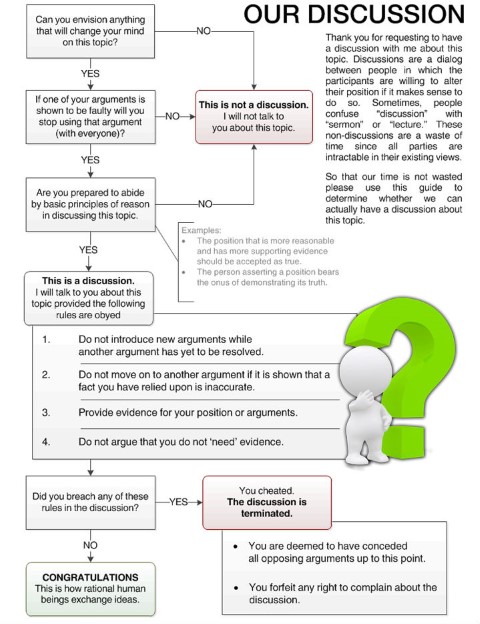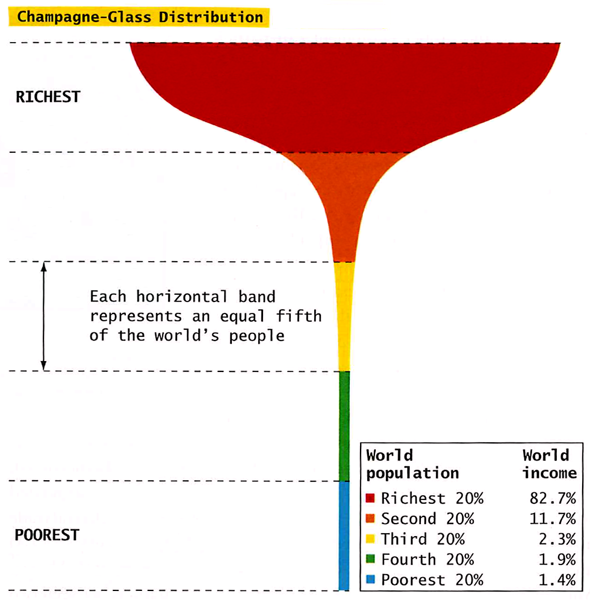-
Home / Does being rich impose a moral obligation?
Was this valuable to you?
other links and editorials from b_independent
In George Orwell's allegory Animal Farm, he made the point that we're all equal, but some "are more equal than others." In a society where the vast majority of wealth is now owned by a very limited number of people, his point has never been more important to understand. The Pareto principle wins again.
The huge discrepancies in wealth lead to questions about our moral code, as it is a certain moral code that got us here. It's not accurate to claim that the 20% who own 85% of the wealth are in that position because they are selfish, as being selfish doesn't mean you will become wealthy. So something else is going on.
Peter Singer is a philosopher who thinks the utilitarian idea "the greatest good of the greatest number" is the only measure of good or ethical behavior. His moral code effectively leads to the following tenet: if you can save the life of an innocent person at relatively little cost, then it is wrong to let the person die. Logically then, the implication becomes: if I can save someone's life at relatively little cost, then I ought to do so.
As critics have pointed out, in effect, Singer believes that morality requires us to weigh the needs of all from an impartial standpoint, and that the affluent have an obligation to assist those who are physically and socially distant. In Singer's own words: "if it is in our power to prevent something bad from happening, without thereby sacrificing anything of comparable moral importance, we ought, morally, to do it. By "without sacrificing anything of comparable moral importance" I mean without causing anything else comparably bad to happen, or doing something that is wrong in itself, or failing to promote some moral good, comparable in significance to the bad thing that we can prevent."
There's another way to look at the large divide between rich and poor as, after all, what's so wrong about making money? Paul Graham put it this way: "You need rich people in your society not so much because in spending their money they create jobs, but because of what they have to do to get rich. I'm not talking about the trickle-down effect here. I'm not saying that if you let Henry Ford get rich, he'll hire you as a waiter at his next party. I'm saying that he'll make you a tractor to replace your horse."
Do the rich have a responsibility and/or obligation to care for those less wealthy? Is it morally wrong to withhold life-saving aid from someone which you could provide with minimal cost on your part? What entitles one person to have more rights than someone else? In which scenarios are self-interest or selfish behaviors called for and in which scenarios are altruistic or social behaviors more appropriate? What are the characteristics of the moral code that has led us to 85% of the wealth being owned by 20% of the people? What does it mean to live an ethical life?
To challenge my students to think about the ethics of what we owe to people in need, I ask them to imagine that their route to the university takes them past a shallow pond. One morning, I say to them, you notice a child has fallen in and appears to be drowning. To wade in and pull the child out would be easy but it will mean that you get your clothes wet and muddy, and by the time you go home and change you will have missed your first class.
I then ask the students: do you have any obligation to rescue the child? Unanimously, the students say they do. The importance of saving a child so far outweighs the cost of getting one's clothes muddy and missing a class, that they refuse to consider it any kind of excuse for not saving the child. Does it make a difference, I ask, that there are other people walking past the pond who would equally be able to rescue the child but are not doing so? No, the students reply, the fact that others are not doing what they ought to do is no reason why I should not do what I ought to do.
Once we are all clear about our obligations to rescue the drowning child in front of us, I ask: would it make any difference if the child were far away, in another country perhaps, but similarly in danger of death, and equally within your means to save, at no great cost - and absolutely no danger - to yourself? Virtually all agree that distance and nationality make no moral difference to the situation. I then point out that we are all in that situation of the person passing the shallow pond: we can all save lives of people, both children and adults, who would otherwise die, and we can do so at a very small cost to us: the cost of a new CD, a shirt or a night out at a restaurant or concert, can mean the difference between life and death to more than one person somewhere in the world - and overseas aid agencies like Oxfam overcome the problem of acting at a distance.
At this point the students raise various practical difficulties. Can we be sure that our donation will really get to the people who need it? Doesn't most aid get swallowed up in administrative costs, or waste, or downright corruption? Isn't the real problem the growing world population, and is there any point in saving lives until the problem has been solved? These questions can all be answered: but I also point out that even if a substantial proportion of our donations were wasted, the cost to us of making the donation is so small, compared to the benefits that it provides when it, or some of it, does get through to those who need our help, that we would still be saving lives at a small cost to ourselves - even if aid organizations were much less efficient than they actually are...
We live in a time when many people experience their lives as empty and lacking in fulfilment. The decline of religion and the collapse of communism have left but the ideology of the free market whose only message is: consume, and work hard so you can earn money to consume more. Yet even those who do reasonably well in this race for material goods do not find that they are satisfied with their way of life. We now have good scientific evidence for what philosophers have said throughout the ages: once we have enough to satisfy our basic needs, gaining more wealth does not bring us more happiness...
We cannot continue to see our goal as acquiring more and more wealth, or as consuming more and more goodies, and leaving behind us an even larger heap of waste...
Here ethics offer a solution. An ethical life is one in which we identify ourselves with other, larger, goals, thereby giving meaning to our lives. The view that there is harmony between ethics and enlightened self-interest is an ancient one, now often scorned. Cynicism is more fashionable than idealism. But such hopes are not groundless, and there are substantial elements of truth in the ancient view that an ethically reflective life is also a good life for the person leading it. Never has it been so urgent that the reasons for accepting this view should be widely understood.
In a society in which the narrow pursuit of material self-interest is the norm, the shift to an ethical stance is more radical than many people realize. In comparison with the needs of people going short of food in Rwanda, the desire to sample the wines of Australia's best vineyards pales into insignificance. An ethical approach to life does not forbid having fun or enjoying food and wine; but it changes our sense of priorities. The effort and expense put into fashion, the endless search for more and more refined gastronomic pleasures, the added expense that marks out the luxury-car market - all these become disproportionate to people who can shift perspective long enough to put themselves in the position of others affected by their actions. If the circle of ethics really does expand, and a higher ethical consciousness spreads, it will fundamentally change the society in which we live.
About philosophy
 philosophyhttps://valme.io/c/philosophyc_prompt
philosophyhttps://valme.io/c/philosophyc_prompt“Too often... we enjoy the comfort of opinion without the discomfort of thought," said John F. Kennedy in 1962.
The term philosophy comes from two Greek words meaning love of wisdom. Well put. Please apply it here.


